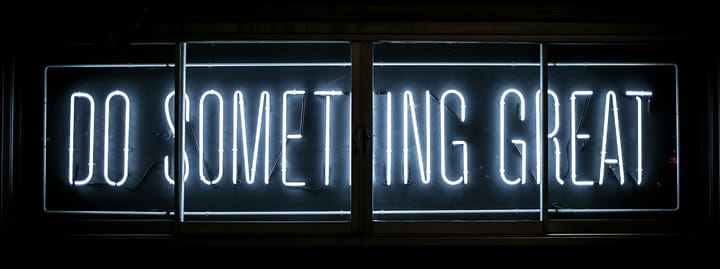Books That Will Actually Help You Navigate Career Confusion
Stuck in career limbo and tired of advice that doesn't match reality? These books offer genuine guidance for navigating professional uncertainty.
Stuck in career limbo while everyone else seems to have it figured out?
I get it. You're watching LinkedIn updates about dream jobs and promotions while you're over here wondering if you picked the wrong major, the wrong industry, or maybe just the wrong planet. Every career advice article feels written for someone who has a clear passion and unlimited options.
Meanwhile, you're dealing with student loans, rent, and the reality that "follow your passion" doesn't pay bills when your passion is something unmarketable or you're not even sure what your passion is.
Most career books are written by people who had linear success stories or figured everything out in their twenties. They offer advice like "just network more" or "find your purpose" without acknowledging that career paths are messy, confusing, and often don't make sense until you look back years later.
But some books actually get it. They're written by people who understand career uncertainty and offer practical strategies for moving forward when you don't have all the answers.
Curated by someone who changed careers three times and learned more from the confusion than from the clarity.
Why Most Career Advice Misses the Mark
It assumes you know what you want. Reality: Most people are figuring it out as they go.
It's written by people with privilege. Taking unpaid internships and "following dreams" requires financial safety nets.
It oversimplifies complex decisions. Career choices involve money, geography, family, and dozens of other factors.
It ignores the messy middle. The period between knowing you want change and knowing what you want instead.
It promises quick fixes. Real career development takes time and involves uncertainty.
What actually helps: Books that acknowledge confusion as normal and offer frameworks for making decisions with incomplete information.
🎯 Foundation Books for Career Clarity
"So Good They Can't Ignore You" by Cal Newport
Why it's essential: Destroys the "follow your passion" myth with research
Key insight: Passion follows mastery, not the other way around
Best for: People stuck because they don't have a clear passion
Practical framework: Focus on building valuable skills instead of finding your calling
What makes it different: Based on real career success stories, not motivational theories
Relief factor: Permission to not have it all figured out from the start
Action steps: How to identify and develop valuable skills in any field
Game changer: Shifts focus from finding the "right" career to becoming valuable in your current one
"Designing Your Life" by Bill Burnett and Dave Evans
Why it works: Engineering approach to life and career design
Best for: People who want systematic approaches to career confusion
Key tool: Prototyping potential careers before committing
Framework: Design thinking applied to life decisions
Practical exercises:
- Workview and lifeview clarification
- Ideation for multiple career paths
- Prototyping experiences to test assumptions
- Energy audit to understand what energizes vs. drains you
Reality-based: Acknowledges that perfect careers don't exist, good-enough careers do
"What Color Is Your Parachute?" by Richard N. Bolles
Why it's a classic: Comprehensive career change and job search guide
Best for: People making major career transitions
Updated annually: Keeps pace with changing job market realities
Strength: Combines self-assessment with practical job search strategies
Useful sections:
- Skills identification and transferability
- Values clarification exercises
- Industry research strategies
- Networking that doesn't feel gross
- Interview preparation for career changers
Limitation: Can feel overwhelming - use sections that apply to your situation
📚 Books for Specific Career Challenges
For Quarter-Life Crisis
"The Defining Decade" by Meg Jay
- Focus: Why your twenties matter more than you think
- Best insight: Decisions in your twenties compound over time
- Relief: Normal to feel confused and uncertain
- Action orientation: How to make your twenties count without having everything figured out
"The Quarter-Life Breakthrough" by Adam Smiley Poswolsky
- Author credibility: Changed careers from government to purpose-driven work
- Practical approach: Step-by-step process for career transition
- Money reality: How to transition without going broke
- Community emphasis: Building support networks during career change
For Mid-Career Transitions
"Transitions" by William Bridges
- Focus: The psychology of change and transition
- Key insight: Endings must come before new beginnings
- Best for: People feeling stuck between old and new career identities
- Framework: Understanding the emotional process of career change
"The Pathfinder" by Nicholas Lore
- Comprehensive: Deep dive into career choice methodology
- Best for: People willing to invest serious time in self-assessment
- Strength: Helps identify work that fits your personality and values
- Reality check: Requires significant time investment but thorough results
For Industry Switchers
"The Complete Career Changer" by Anna Ranieri
- Practical focus: How to transfer skills across industries
- Real stories: Examples of successful career changers
- Networking guidance: How to build connections in new fields
- Timeline realistic: Acknowledges career change takes time
"Switchers" by Dawn Graham
- LinkedIn expert: Author knows modern job market realities
- Digital age focus: How to position yourself online for career change
- Personal branding: Creating narrative around your career transition
- Modern strategies: Using social media and online platforms effectively
💼 Books for Specific Professional Situations
For People Who Hate Their Jobs
"I Could Do Anything If I Only Knew What It Was" by Barbara Sher
- Psychology focus: Why smart people get stuck
- Resistance work: Overcoming internal barriers to change
- Practical exercises: Identifying what you actually want (harder than it sounds)
- Support systems: How to get help when you feel isolated
"Do What You Are" by Paul Tieger and Barbara Barron
- Personality-based: Career choices based on Myers-Briggs type
- Systematic approach: Matching personality traits to career satisfaction
- Comprehensive: Covers multiple career options for each type
- Reality check: Personality fit matters, but it's not everything
For Freelancers and Entrepreneurs
"Company of One" by Paul Jarvis
- Small business focus: Growing a business without scaling complexity
- Lifestyle design: Building work around your desired lifestyle
- Anti-hustle culture: Success without burning out
- Practical strategies: How to stay small while staying profitable
"The $100 Startup" by Chris Guillebeau
- Low-barrier entry: Starting businesses without major capital
- Real examples: Case studies of successful small businesses
- Action-oriented: Step-by-step business launch process
- Reality-based: Acknowledges that not everyone wants to build an empire
For Academic-to-Industry Transitions
"Leaving Academia" by Christopher Caterine
- Specific focus: PhD to industry career transitions
- Identity work: Rebuilding professional identity outside academia
- Practical guidance: Translating academic skills for industry
- Emotional support: Dealing with the grief of leaving academic dreams
"The Versatile PhD" by Karen Kelsky and others
- Alternative careers: Non-academic options for PhD holders
- Skill translation: How to present academic experience to employers
- Industry insights: What different industries value in PhD candidates
- Network building: Creating professional connections outside academia
🔧 Decision-Making and Planning Books
"Decisive" by Chip Heath and Dan Heath
Why it's crucial: How to make better decisions when stakes are high
Four-step process: WRAP method for important decisions
Best for: People paralyzed by career choices
Research-based: Combines psychology research with practical frameworks
Career application:
- Widening options instead of narrow either/or thinking
- Reality-testing assumptions about career paths
- Attaining distance from emotional decision-making
- Preparing for different outcomes
"The Lean Startup" by Eric Ries
Why it applies to careers: Testing career hypotheses before major commitments
Key concept: Minimum viable product applied to career experiments
Best for: People who want to test careers before committing
Measurement focus: How to evaluate whether a career path is working
Career experimentation:
- Informational interviews as market research
- Side projects as career prototypes
- Job shadowing as user testing
- Iterating based on feedback and results
📖 Books for Emotional and Mental Aspects
"The Gifts of Imperfection" by Brené Brown
Career relevance: Dealing with shame and perfectionism in professional life
Best for: People whose career anxiety stems from perfectionism
Key insight: Vulnerability and authenticity in professional settings
Practical tools: Building resilience during career uncertainty
"Mindset" by Carol Dweck
Growth vs. fixed mindset: How beliefs about ability affect career development
Best for: People who feel stuck or believe they can't change
Research-based: Decades of studies on motivation and achievement
Career application: How to approach skill development and setbacks
🚫 Career Books to Approach with Caution
Books by people who inherited wealth or had unusual advantages
Their advice may not translate to your reality
"Quit your job and follow your dreams" books
Financial privilege often underlies these success stories
Books that promise quick career transformation
Real change takes time and involves uncertainty
Books with one-size-fits-all solutions
Career paths are individual and context-dependent
Books that ignore financial realities
Practical considerations matter for most people
📅 Building Your Career Development Reading Plan
Start with Foundation (Month 1)
- "So Good They Can't Ignore You" - Reframe thinking about passion and careers
- "Designing Your Life" - Systematic approach to career design
- Choose one specific book based on your current situation
Add Depth (Month 2-3)
- Decision-making book: "Decisive" for better career choices
- Transition book: Based on your specific type of career change
- Industry-specific book: If you're targeting a particular field
Ongoing Development
- Annual "What Color Is Your Parachute?" update for job search strategies
- Skill-specific books: Based on areas you want to develop
- Industry publications: Stay current with your field or target field
How to Actually Use Career Books
Before Reading
- Identify your specific challenge: Unclear direction, job search, career change, etc.
- Set realistic expectations: Look for frameworks and strategies, not perfect answers
- Assess your situation: Some advice works better at different career stages
While Reading
- Complete the exercises: Most career books include practical activities
- Take notes on actionable strategies: Focus on what you can implement
- Adapt advice to your constraints: Financial, geographic, family considerations
After Reading
- Choose 2-3 strategies to implement immediately
- Set up experiments to test career assumptions
- Seek feedback from people in your target field
- Give strategies time - career development is slow
The Reality About Career Confusion
Confusion is normal and often productive. It means you're growing beyond your current situation.
Most successful people changed directions multiple times. Linear career paths are rarer than social media suggests.
You don't need perfect clarity to take action. Small steps in interesting directions often lead to unexpected opportunities.
Career satisfaction comes from multiple factors, not just finding your "passion."
Financial realities matter. Good career advice acknowledges practical constraints.
Feeling stuck in your career journey? Start with "So Good They Can't Ignore You" to reframe your thinking, then add "Designing Your Life" for practical strategies. Get in touch with your career transition stories - I love hearing how people navigate professional uncertainty.
Want more professional development resources? Check out our personal branding starter pack or explore books that make you financially smarter while changing careers.


